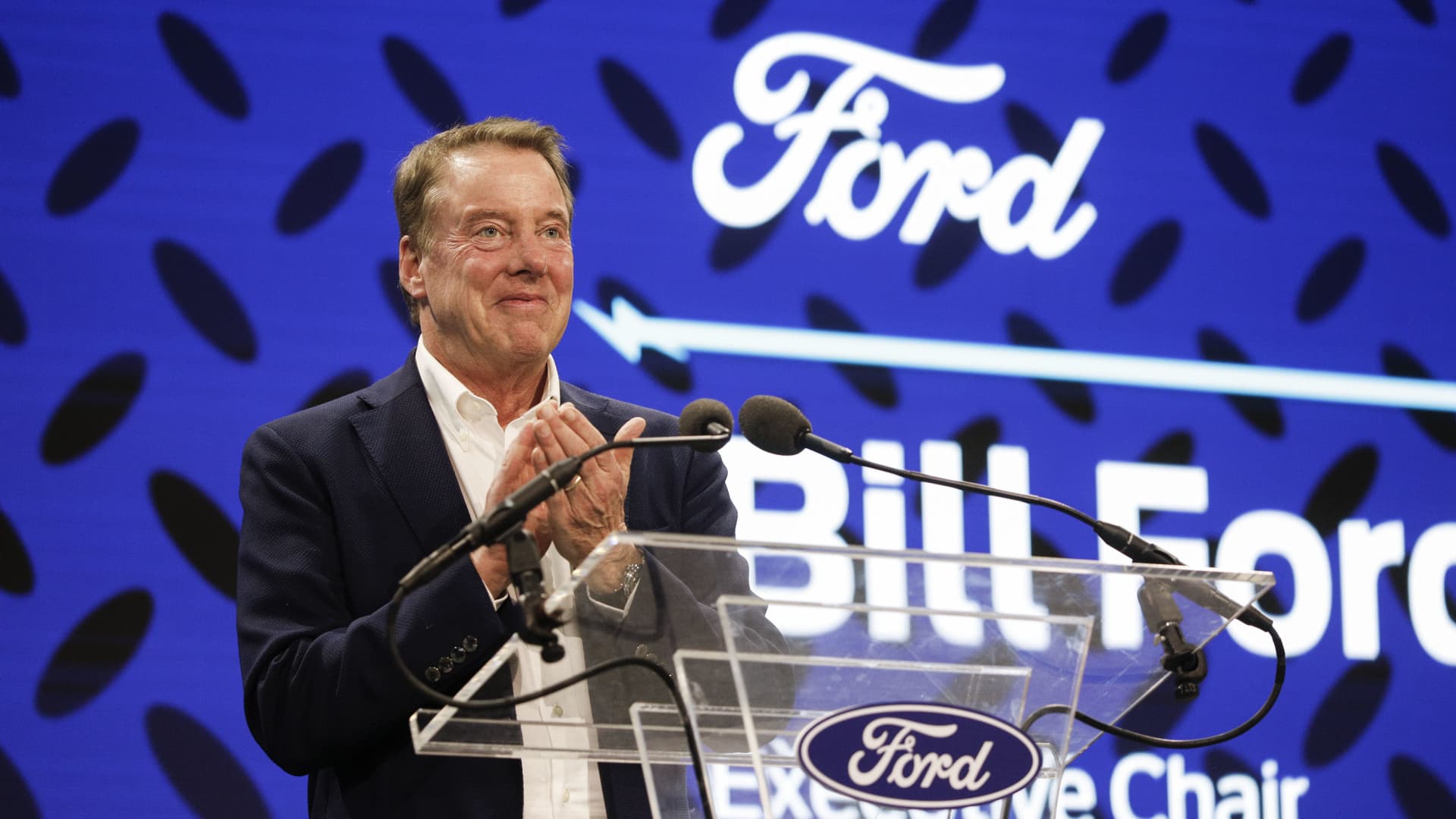Products You May Like
DEARBORN, Mich. – Ford Motor Executive Chairman Bill Ford on Monday warned that an ongoing strike by the United Auto Workers threatens the future livelihood of the company as well as the American automotive industry.
Ford, who has been a part of UAW negotiations since 1982, pleaded with union members and leaders to work with the company, instead of against it, to reach a tentative deal to “end to this acrimonious round of talks.”
Such comments by the great-grandson of company founder Henry Ford are uncharacteristic during contract talks with UAW.
“We are at a crossroads,” Ford said during a press conference at the company’s massive Rouge Complex in metro Detroit. “Choosing the right path is not just about Ford’s future and our ability to compete. This is about the future of the American automobile industry.”
Ford, ahead of speaking on stage, told reporters he wanted to “elevate” the conversation about the contract negotiations. Ford said he didn’t want to get personal in his remarks because “it doesn’t matter” at this point.
“The UAW’s leaders have called us the enemy in these negotiations. But I will never consider our employees as enemies. This should not be Ford versus the UAW,” Ford said. “It should be Ford and the UAW vs. Toyota and Honda, Tesla, and all the Chinese companies that want to enter our home.”
UAW did not immediately respond for a request for comment after Ford’s comments.
Ford’s comments come after a week of contentious talks between the company and UAW, including the union unexpectedly announcing a strike Wednesday night at the company’s highly profitable Kentucky Truck plant.
More than 19,000 of Ford’s 57,000 UAW members are currently impacted by the strike, including more than 16,600 striking workers. Another roughly 2,480 employees have been laid off as a result of the work stoppage.
Ford last week said it was “at the limit” of what it can offer UAW in terms of economic concessions.
Ford’s most recent proposal included 23% to 26% wage increases depending on classification; retention of platinum health care benefits; ratification bonuses; reinstatement of cost-of-living; and other benefits.
Overall, only about 34,000 U.S. automakers with the companies – or roughly 23% of UAW members covered by the expired contracts with the Detroit automakers – are currently on strike.
The UAW has been gradually increasing the strikes since the work stoppages began after the sides failed to reach tentative agreements by Sept 14.
UAW President Shawn Fain last week said the union has entered a “new phase” of the targeted strikes in which it would no longer pre-announce the work stoppages, as it had been.
